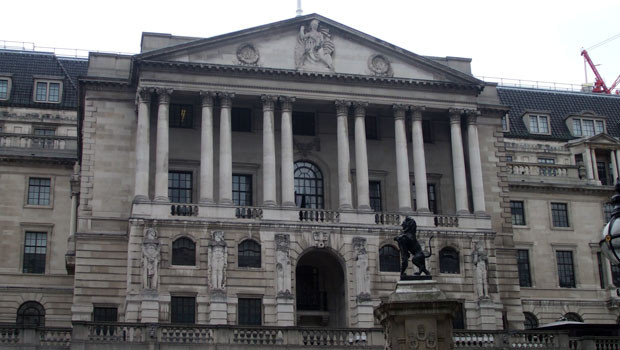Bank of England ups interest rates to 0.5%

The Bank of England has increased interest rates to 0.5%, it was announced on Thursday, as it looks to curb soaring inflation.
The widely-expected 0.25 percentage point hike follows December’s decision to increase rates to 0.25% from a record low of 0.1%. It is the first time since 2004 that the central bank has opted to lift interest rates at two consecutive Monetary Policy Committee meetings.
The MPC voted for the rise of a majority of 5-4. But the dissenting minority - Jonathan Haskel, Catherine Mann, Dave Ramsden and Michael Saunders - voted to rise rates at a faster pace, by 0.5 basis points to 0.75%.
The BoE is trying to tackle growing price pressures which have seen inflation hit a near-30-year of 5.4%, well above its 2% target, while ensuring the economy continues to grow post pandemic.
In its accompanying Monetary Policy Report, the BoE said it expected inflation to rise to around 7% in the spring before falling back to its 2% target over two years. Disposable incomes, meanwhile, are forecast to shrink by 2% this year after taking into account the rising cost of living, and a further 0.5% in 2022. That would be the biggest annual reduction in spending power since 1990.
Victoria Scholar, head of investment at Interactive Investment, said: "It was a hawkish hike from the MPC. Although all voters called for a hike, the committee was divided over the extent of the increase, suggesting it is seriously concerned about the inflationary backdrop.
"In another hawkish move, the BoE began unwinding its quantative easing stimulus programme as its monetary policy regime shifts from easing to tightening.
"However, the big question is whether these incrementally hawkish monetary moves, which filter though the demand side, will be able to offset the supply side inflation pressures from rising energy bills, supply chain bottlenecks and labour market tightness. The central bank is walking a tightrope, attempting to curtail inflation while cautiously steering clear of a recession."
Samuel Tombs, chief UK economist at Pantheon Macroeconomics, said: "If, as we continue to expect, GDP growth is sluggish this year and CPI inflation shows clear signs of falling sharply from April onwards, then the MPC seems likely to proceed much more slowly with rate hikes from the summer onwards. We continue to look for a further 25bp increase in the bank rate in May, but then expect the committee to pause before resuming its tightening cycle six to nine months later."
Kallum Pickering, senior economist at Berenberg, said the MPC had made the right decision on rates. He noted: "Gradual rate hikes plus a passive quantative tightening are a sensible response to growing inflation risks. While gilt markets may initially overreach to today’s policy decisions, causing benchmark rates to spike, the gradual normalisation of interest rates that coincide with above trend growth and strong nominal momentum should not present a major risk to the upswing or the UK’s financial system."
Kitty Ussher, chief economist at the Institute of Directors, said: "Because today’s decision was widely in line with market predictions, the jury is still out as to whether it was sufficiently dramatic to bring expectations of inflation down the way that is needed to change behaviour and get a handle on the situation.
"The bank’s own central projection is that annual inflation will peak at 7.25% in April. If in future weeks that too looks out of kilter with the data as it comes in, then today’s decision will not have done much to improve the bank’s dented credibility among business leaders."